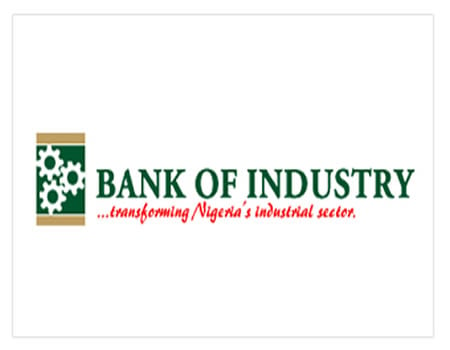World Bank and the Bank of Industry have unveiled a new framework for development finance aimed at unlocking private capital, deepening inclusion, and spurring job creation across key sectors of the economy.
In a statement issued on Wednesday, the Bank of Industry said the World Bank Country Director for Nigeria, Matthew Verghis, and the Chairman of the BoI Board, Mansur Muhtar, made this known at the second edition of the BoI Development Annual Lecture Series held in Abuja.
“We must emphasise the urgency of rethinking Nigeria’s development finance architecture to reflect changing global realities and domestic needs,” the country director said.
He described Nigeria as standing at a defining moment that demands a radical rethink of how the nation funds growth and builds prosperity.
According to the statement, both leaders also commended the government’s ongoing economic reforms and urged the adoption of a modern financing model to drive inclusive and sustainable development.
The event, themed “Development Finance Imperatives: Rethinking Nigeria’s Path Forward,” brought together top financial and policy leaders, including the African Development Bank’s Country Director, Abdul Kamara; Managing Director of the Bank of Agriculture, Ayo Sotinrin; former CBN Deputy Governor, Sarah Alade; BOI Managing Director, Olasupo Olusi; and First Bank Chairperson, Ibukun Awosika.
Verghis described Nigeria as being at a “turning point,” noting that key macroeconomic indicators, such as stabilising inflation, rising reserves, and improving investor sentiment, signal that the government’s fiscal and monetary reforms are beginning to yield results.
He cited the country’s recent removal from the Financial Action Task Force grey list as a “landmark moment” that strengthens Nigeria’s credibility in global finance.
“It is a signal that Nigeria’s anti-money laundering systems now meet international benchmarks.
“That single step enhances investor trust and strengthens the foundation for sustainable economic growth,” he said.
But Verghis warned that despite these gains, poverty and unemployment remain stubborn challenges.
“We are seeing progress in stabilisation, but the purchasing power of citizens remains weak because inflation is still high. To sustain these reforms, we must focus on policies that drive job creation and increase access to finance,” he said.
The World Bank chief outlined a vision for a modernised development finance model, one that mobilises private capital and harnesses digital technology to bridge Nigeria’s vast infrastructure and enterprise funding gaps.
He argued that traditional state-led or donor-funded models are outdated, given Nigeria’s annual infrastructure needs estimated at over $100bn.
“Following conventional financing approaches will not take us close to our infrastructure or enterprise goals. We need a shift, one that treats development finance not as an end in itself, but as a tool for structural transformation,” Verghis said.
He said the World Bank was supporting a range of new mechanisms to deepen access to finance and crowd in private investment.
Among ongoing efforts, Verghis highlighted the Fostering Inclusive Finance for MSMEs project, an ambitious $500 million initiative designed to attract up to $2 billion in private investment.
The programme will target Nigeria’s estimated $120 billion MSME financing gap using tools such as subordinated debt, MSME investment funds, and partial credit guarantees.
He added that fintech innovation could dramatically reshape Nigeria’s credit ecosystem.
“Some of Africa’s most creative fintechs are based here. Digital innovation can make credit cheaper, faster, and more inclusive for underserved communities,” he said.
Verghis also identified platforms such as InfraCredit and the proposed Nigeria Infrastructure Finance and Guarantees Platform as transformative instruments for crowding in private capital and de-risking large projects.
These structures, he said, could enable financiers and project developers to collaborate more efficiently, creating a “bankable pipeline” of infrastructure projects without the delays typical of traditional public-private partnerships.
In his remarks, BoI Board Chairman said Nigeria’s development finance institutions must evolve from being “traditional lenders” into “catalysts of transformation.”
He urged stronger collaboration between the government, private investors, and multilateral partners to ensure financing models deliver inclusive growth.
“At the Bank of Industry, we believe inclusive, sustainable, investment-led growth is not just a goal, it’s a necessity.
“Development finance is about enabling businesses to scale, build capacity, and become globally competitive,” Muhtar said.
He emphasised that the BoI Development Lecture Series had become a national forum for shaping Nigeria’s future financing strategy.
“The challenges we face today, digital disruption, climate change, and global volatility, demand that we innovate in how we fund progress and build stronger institutions,” he said.
Similarly, the BoI Managing Director, Olasupo Olusi, said the lecture series underscored the bank’s role as a strategic partner in Nigeria’s development journey.
Olusi noted that this year’s theme reflected the urgency of reimagining finance amid global transitions, from green energy shifts to digital revolutions.
“At the Bank of Industry, we believe that inclusive and sustainable investment-led growth is not just a goal, it is a necessity. Our mission is to drive industrial transformation by supporting enterprises, deepening sectoral linkages, and embracing technology to unlock new opportunities,” he said.
He stressed that the country’s financing priorities should align with President Bola Tinubu’s Renewed Hope Agenda, which envisions a resilient, innovation-driven economy.
“President Tinubu has consistently emphasised the need to build a resilient and inclusive economy, one that creates wealth and empowers citizens. Development finance must be central to that transformation,” Olusi said.
Nigeria’s push for reform-backed development financing comes amid mounting fiscal pressures, rising debt servicing costs, and the need to mobilise trillions in investment to close its infrastructure and industrial gaps.
The partnerships between the World Bank, BoI, and other DFIs could play a defining role in repositioning the economy from consumption-led to production-driven growth.
The statement said the event, themed “Development Finance Imperatives: Rethinking Nigeria’s Path Forward,” brought together top financial and policy leaders, including the African Development Bank’s Country Director, Abdul Kamara; Managing Director of the Bank of Agriculture, Ayo Sotinrin; former CBN Deputy Governor, Sarah Alade; BoI Managing Director, Olasupo Olusi; and First Bank Chairperson, Ibukun Awosika.















